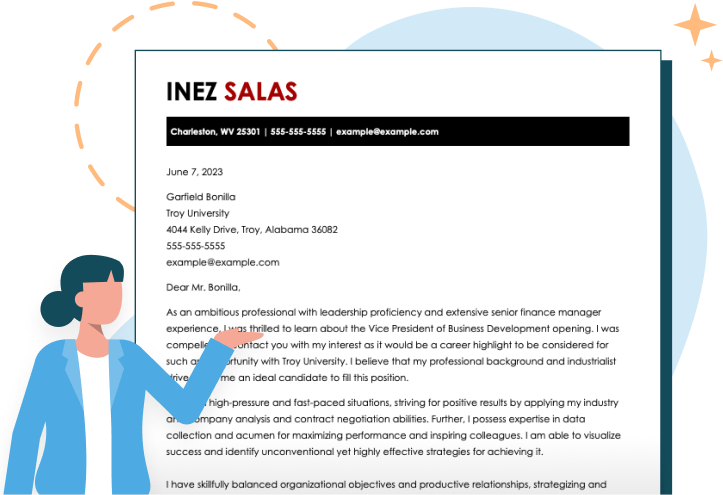- Featured in:
Find More Healthcare Support Cover Letter Examples
Free Health Care Assistant cover letter example
Dear Ms. Ramirez:
With 7 years of experience providing comprehensive patient care and support, I am pleased to present the enclosed resume in response to your posting for a Health Care Assistant.
My background includes excellent experience providing patient service and compassionate care in both health care facility and in-home environments. Adept at coordinating multiple services to ensure the highest level of quality care, I excel at performing diverse responsibilities and tasks to facilitate medical progress while enhancing patients’quality of life.
Highlights of my experience include…
Providing a range of patient support services—including medication administration, personal hygiene assistance, meal preparation, supply replenishment, and condition monitoring.
Collaborating with external caregivers and providers to ensure appropriate patient treatment and follow up.
Ensuring full adherence to all safety and cleanliness regulations and guidelines.
Consistently demonstrating outstanding communication, interpersonal, and administrative skills.
With my expertise in providing general health care support for patients in need, I am confident that I can greatly contribute to your facility’s goals. Thank you for your consideration; I look forward to meeting with you to discuss this opportunity and my qualifications in more detail.
Sincerely,
Pamela R. Hawker
Include These Health Care Assistant Skills
- Clinical hygiene and personal care knowledge
- Empathy and a caring personality
- Confidentiality and integrity
- Good communication and interpersonal skills
- Stamina and physical fitness
- Emotional stability
- Health and safety expertise
- Teamworking
- Observational skills
Healthcare Support Resume Examples



